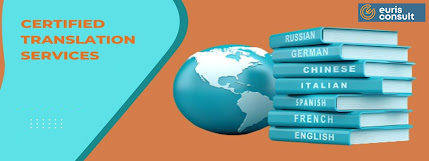Bridging Cultures and Breaking Barriers: A Historical Journey of Translation
Translation is an age-old practice that has played a significant role in connecting different cultures and enabling communication across linguistic barriers. Throughout history, it has served as a vital tool in facilitating trade, diplomacy, and cultural exchange. Today, with the advent of globalization and the need for seamless communication, translation services have become more important than ever. In this blog, we will delve into the rich history of translation, exploring its evolution and the impact it has had on societies worldwide. We will also shed light on the best translation services in Malta, a country known for its linguistic diversity and cultural heritage.
The origins of translation can be traced back to
ancient civilizations such as Mesopotamia, Egypt, and China. In Mesopotamia,
scribes played a crucial role in translating legal, religious, and literary texts
from Sumerian to Akkadian. Similarly, ancient Egyptians employed translators to
bridge the gap between hieroglyphics and other languages. In China, the
translation of philosophical texts contributed to the spread of Confucianism
and Buddhism.
The Renaissance marked a significant turning point
in the history of translation. Scholars such as Desiderius Erasmus and Martin
Luther recognized the importance of translating religious texts into vernacular
languages, making them accessible to a wider audience. This led to the birth of
modern translation practices, emphasizing the need for accuracy and
faithfulness to the source text.
With the advent of the Industrial Revolution, the
demand for translation services grew exponentially. The spread of colonialism
and global trade necessitated the translation of legal documents, trade
agreements, and scientific texts. In the 20th century, the development of
typewriters, telegraphs, and eventually computers and the internet
revolutionized the translation process. Computer-assisted translation tools and
machine translation systems have significantly expedited the translation
process, while professional translation services ensure accuracy and cultural
sensitivity.
Malta, a Mediterranean island with a rich cultural
heritage, stands as a testament to the power of translation. As a multilingual
country, with Maltese and English as its official languages, translation
services play a vital role in facilitating communication between different
linguistic communities. The best
translation services in Malta provide a wide range of language
solutions, including document translation, website localization, and
interpretation services. These services ensure that individuals, businesses,
and organizations can effectively communicate and engage with their target
audience.
While technological advancements have made machine
translation more accessible, the importance of professional translation
services cannot be overstated. Accurate translation requires linguistic
expertise, cultural understanding, and the ability to capture the nuances of
the source language. A well-executed translation not only conveys the intended
meaning but also preserves the cultural context and tone of the original text.
This is particularly crucial when it comes to legal, medical, and technical
translations, where precision is paramount.
Translation has a rich and diverse history,
reflecting the evolution of societies and their interactions. From ancient
scribes to modern-day professional translation services, the art of translation
continues to connect people, cultures, and ideas. In Malta, the best
translation services cater to the country's linguistic diversity, bridging gaps
and fostering understanding. As we move forward in an increasingly
interconnected world, the need for accurate and reliable translation services
will only continue to grow, facilitating global communication and breaking down
linguistic barriers.
If you require translation services,
please get in touch with us on translations@eurisconsult.com
and we will provide you with a quote for free.

.jpg)


Comments
Post a Comment